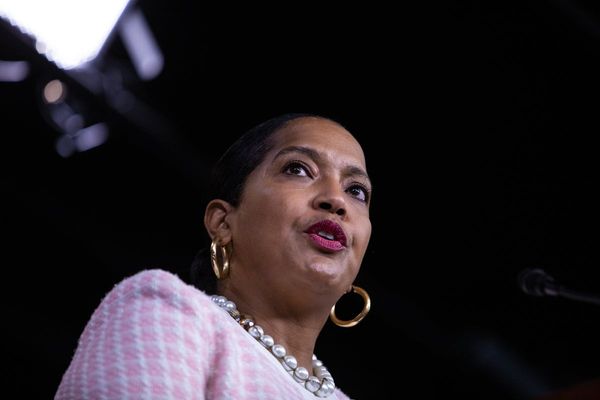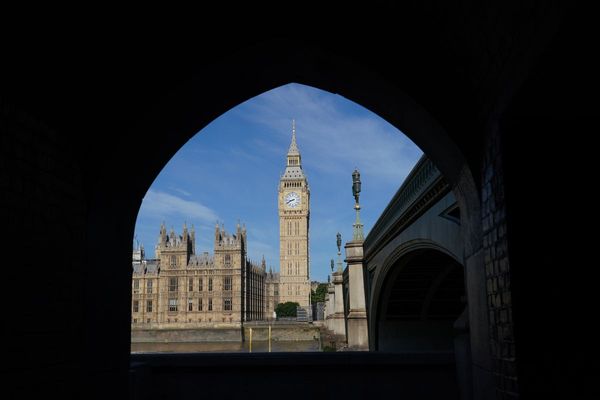
A dramatic overhaul of the nation’s family laws which puts more focus on a child’s best interests than on shared parental responsibility, is set to go ahead.
A multi-partisan Senate committee has considered amendments to the Family Law Act and, while it is calling for further changes, overall it wants the bill passed.
The centrepiece of the proposed legislation is the repeal of the presumption of equal shared parental responsibility – often misinterpreted as a presumption of equal shared parental time.
The committee found that “a history of family violence, abuse and neglect as a general consideration in determining what is in the child’s best interests” was critical, and that language and concepts used to “better recognise and protect the right of Aboriginal and Torres Strait Islander children to enjoy their culture” should be included.
It also recommended concepts of kinship and child-rearing practices be included, while making sure Aboriginal and Torres Strait Island people are not subject to more onerous disclosure obligations because of such an expansion.
There should also be more consideration of the child’s perspective, including if a child objects to a return order under The Hague convention on child abduction. The convention was put in place to stop non-custodial parents abducting children, but has been misused against victims fleeing domestic violence with their children.
The committee also recommended that safeguards be introduced to stop alleged perpetrators misusing subpoenas to gain access to their alleged victims’ personal information, including counselling notes, medical files and home addresses.
The initial bill included some additional protections but they have been removed from the current draft to be considered in more depth.
The misuse of subpoenas is part of a broader problem known as legal systems abuse, where alleged domestic violence perpetrators representing themselves in family court drag out litigation, introduce vexatious applications and force the victim-survivor to repeatedly be in the same venue as their abuser,
The proposed new legislation includes “harmful proceedings orders” to stop a party from instituting proceedings, to “protect the respondent and/or children who are the subject of proceedings from the harmful impact of frequent and unnecessary applications filed by an applicant”.
While both respondents and litigants may appear in court without a lawyer because of financial issues, research shows alleged abusers using it to control and intimidate their victims. There are concerns men’s rights activists are coaching unrepresented parties on ways to exploit court processes.
Monash University, the independent MP Zoe Daniel and others are calling for changes to go further and define such abuse within the legal system as family violence.
Associate Prof Jane Wangmann is an expert on legal responses to domestic and family violence at the University of Technology Sydney.
She said former partners deliberately make multiple “unmeritorious” applications to deplete a victim-survivor’s funds.
“It’s to wear them down, exhaust their funds, or just be at a venue at which [former partners] can see them – often they’re not allowed to have contact any more,” she said.
She said the legal systems abuse can happen in multiple jurisdictions, tying people up in both family and state courts. Perpetrators might also force unnecessary adjournments by not turning up, or bombard lawyers with correspondence. Abusers can also make false reports to child protection, to landlords, or to social security, to “make her life difficult”.
The chief executive officer of Single Mother Families Australia, Terese Edwards, said legal systems abuse also extended to child support payments, pointing to online forums advising men how to minimise their payments.
During research for a 2020 report on self-represented litigants in family law proceedings for the Australian National Research Organisation for Women’s Safety (Anrows), Wangmann found there were high numbers of self-represented parties in cases involving allegations of family violence. Parties may not be able to afford a lawyer and cannot access legal aid, but some have other reasons, she found.
“Women and professionals … reported alleged perpetrators self-representing in order to harass the woman, or because of arrogance or rejection of legal advice,” the report found.
The report now awaits the government’s response.
• In Australia, the national family violence counselling service is on 1800 737 732. In the UK, call the national domestic abuse helpline on 0808 2000 247, or visit Women’s Aid. In the US, the domestic violence hotline is 1-800-799-SAFE (7233). Other international helplines may be found via www.befrienders.org.







